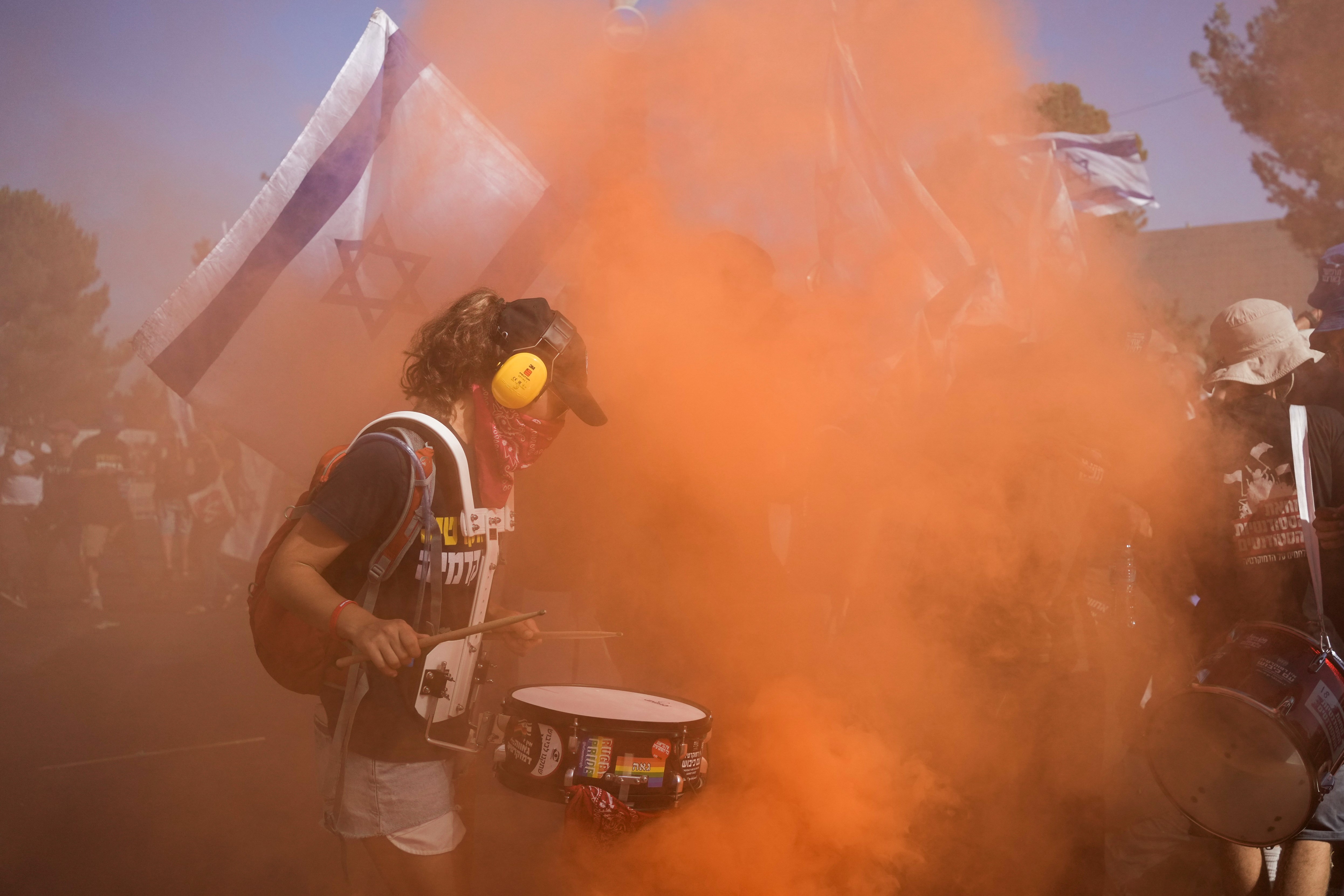Israeli division deepens, protesters block road to Knesset
Demonstrators from the "Brothers in Arms" movement tie themselves up and block the road to the Knesset to prevent access to it, in conjunction with the continuation of contacts to achieve a settlement in the judicial overhaul.
-

Israeli settlers protest against Israeli Occupation Prime Minister Benjamin Netanyahu's judicial overhaul plan outside the parliament in occupied Al-Quds, Monday, July 24, 2023. (AP)
Israeli media reported that demonstrators from the "Brothers in Arms" movement bound themselves together and blocked the road to the Knesset in an effort to prevent Israeli occupation MKs from reaching it.
Simultaneously, dozens of demonstrators reaffirmed their opposition to the "judicial amendment" and blocked the road towards the house of the Minister of Economy in the occupation government, Nir Barakat. Israeli Occupation Police arrested protesters in front of Barakat's house, and arrested dozens of others on suspicion of obstructing them in the Knesset area.
Israeli newspaper Maariv stated that the discussions to achieve a settlement in the judicial amendments, as well as resolve the dispute between Benny Gantz and Yair Lapid are ongoing. Primarily, discussions revolved around how long the rest of the judicial reform amendment would remain frozen, especially after it seems that the softened version of the "reduction law" has been approved by justifying its reasonableness.
Maariv further added, "The justification for reasonableness, in a watered-down form, is the proposal made by President Isaac Herzog, which does not apply to government policy and the appointment of ministers and deputy ministers."
Read more: Judicial overhaul bill will undermine vital US interests: NYT
Israeli media underscored that the current government coalition is willing to halt the judicial reform for half a year, including the Knesset's summer vacation, holidays and part of the winter session. However, Lapid has requested a more extended freezing period of about a year or more.
In parallel, Gantz has been pushing his own proposal, which he dubbed to be a “consensus in exchange for consensus.” The proposal offered to endorse the justification for reasonableness in a watered-down form, in return for negotiations to achieve consensus on the rest of the amendments’ laws without time restrictions.
According to Gantz's proposal, only that which achieves broad consensus could be approved, but Israeli media have indicated that until now, the opposition is not very optimistic.
An Israeli official cited by Israeli media said on Sunday, that "the only way to reach consensus with the opponents of the amendments is to start secret negotiations on an agreed-upon scheme for the composition of the judges' selection committee."
It is worth noting that the occupation government had postponed its session, which was scheduled to take place on Sunday, following the medical procedure that Israeli prime Minister Benjamin Netanyahu underwent.
Earlier today, the former chief economist in the occupation's Ministry of Finance, Yoel Naveh, confirmed in statements reported by Israeli media that Netanyahu's insistence on passing the judicial amendments "will severely harm the Israeli economy."
"A unilateral formula to change the regime in a way that does not enjoy wide consensus can cause very serious economic damage," Naveh explained.
Read more: Overhaul supporters vs. opponents take to streets, deepening division

 3 Min Read
3 Min Read










